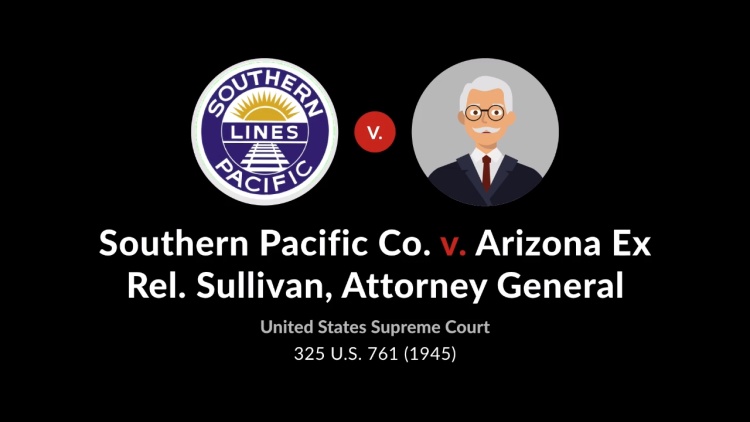Southern Pacific Co. v. Arizona Ex Rel. Sullivan, Attorney General
United States Supreme Court
325 U.S. 761 (1945)
- Written by Megan Petersen, JD
Facts
In 1912, Arizona passed the Arizona Train Limit Law, which made it unlawful for any person or corporation to operate a train of more than fourteen passenger or seventy freight cars in Arizona, and authorized the state to collect a monetary fee from anyone that violated this provision. Southern Pacific Co. (plaintiff) owned and operated many trains running throughout the United States that were all longer than the limits required by the Arizona law. As such, whenever Southern Pacific ran trains through Arizona, it had to shorten the length of its trains and increase the train frequency to make up for the decrease in carrying capacity. This resulted in large increases in operating costs and decreases in efficiency. Southern Pacific brought suit against Sullivan (defendant), the Attorney General of Arizona, alleging that the Arizona state law was an unconstitutional restriction on interstate commerce. The trial court agreed with Southern Pacific, but the court of appeals reversed. Southern Pacific Co. appealed to the United States Supreme Court.
Rule of Law
Issue
Holding and Reasoning (Stone, C.J.)
Dissent (Black, J.)
Dissent (Douglas, J.)
What to do next…
Here's why 907,000 law students have relied on our case briefs:
- Written by law professors and practitioners, not other law students. 47,100 briefs, keyed to 996 casebooks. Top-notch customer support.
- The right amount of information, includes the facts, issues, rule of law, holding and reasoning, and any concurrences and dissents.
- Access in your classes, works on your mobile and tablet. Massive library of related video lessons and high quality multiple-choice questions.
- Easy to use, uniform format for every case brief. Written in plain English, not in legalese. Our briefs summarize and simplify; they don’t just repeat the court’s language.





